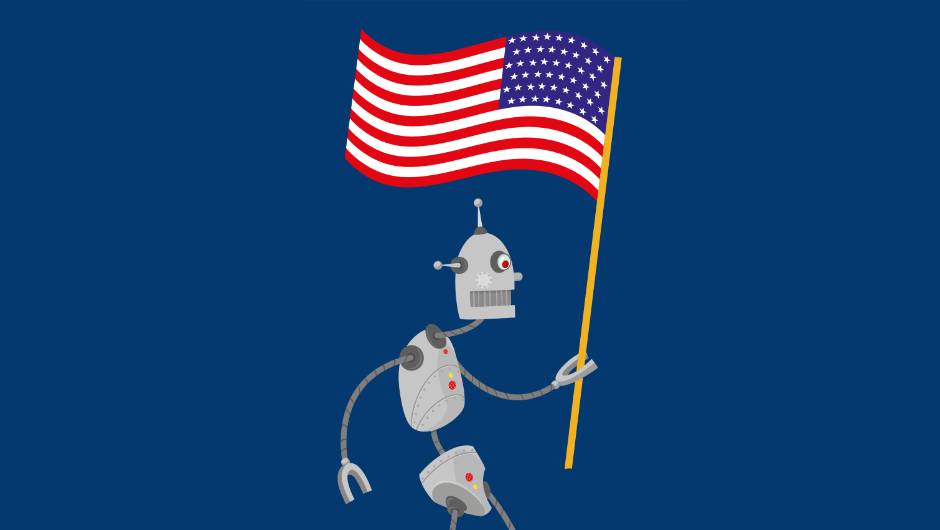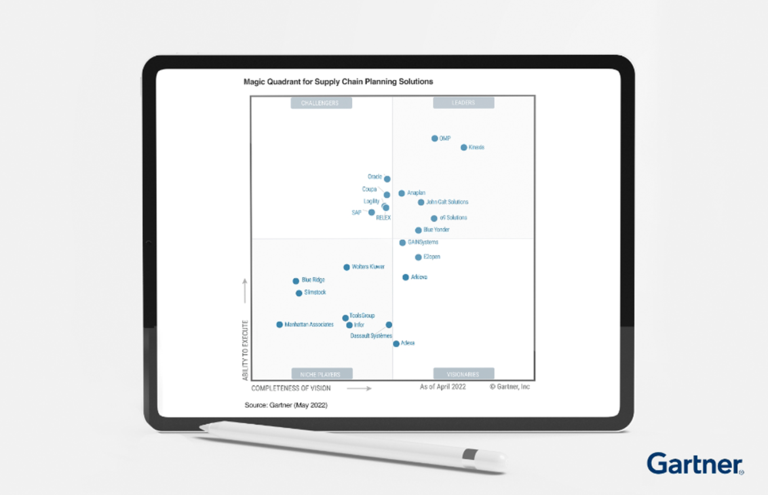The Impact Of Trump Administration Pressure On EU AI Policy

Table of Contents
Trade Disputes and Technological Sovereignty
The Trump administration's trade policies, characterized by tariffs and threats of technology transfer restrictions, significantly influenced the EU's pursuit of technological sovereignty in AI. This pressure fostered a desire for reduced reliance on US tech giants and accelerated efforts to build independent AI capabilities within the EU.
-
Increased pressure to reduce reliance on US tech companies: The imposition of tariffs and trade restrictions on various tech products created an incentive for the EU to diversify its technological supply chains and reduce its dependence on US companies for critical AI components and services. This spurred investment in domestic alternatives.
-
Accelerated efforts to develop domestic AI talent and infrastructure: The perceived threat to European technological independence fueled significant investments in research and development, education, and infrastructure to support the growth of a robust domestic AI ecosystem. This included funding initiatives for AI research, attracting top AI talent, and building high-performance computing facilities.
-
Focus on strengthening EU data protection regulations (GDPR) as a competitive advantage: The EU's General Data Protection Regulation (GDPR), already in place, was strategically leveraged as a competitive advantage. Its stringent data protection standards were positioned as a differentiator, fostering trust and attracting businesses concerned about data privacy issues prevalent in less regulated environments.
-
Concerns about US access to sensitive EU data: Trade disputes raised concerns within the EU about the potential for US access to sensitive data, leading to a renewed focus on data sovereignty and the control of data within the European bloc. This fueled efforts to develop robust data security protocols and minimize reliance on US cloud services for sensitive data.
Specific examples include disputes over data transfer under the Privacy Shield framework and concerns about US surveillance practices, which further fueled the EU's drive for data autonomy.
Regulatory Divergence and the "Data Divide"
A key consequence of the Trump administration's pressure was the widening divergence between the EU's and the US's approaches to AI regulation. This divergence created a "data divide" with the potential to hinder transatlantic data flows and international AI collaboration.
-
EU's focus on ethical AI and data protection versus the US's more laissez-faire approach: The EU prioritized the ethical implications of AI development, focusing on transparency, accountability, and fairness, while the US adopted a more hands-off approach, emphasizing innovation and market-driven solutions.
-
The potential for a "data divide" with different standards hindering transatlantic data flows: The differing regulatory landscapes created challenges for data transfer between the EU and the US, potentially hindering collaborative AI research and development projects. The lack of harmonization created barriers and increased the complexity of cross-border data sharing.
-
Impact on international AI collaborations and standard setting: The divergence in regulatory approaches complicated international collaborations and efforts to establish global AI standards. The EU advocated for global standards that align with its ethical and data protection principles, while the US preferred more flexible, market-based approaches.
-
The role of GDPR in shaping the EU's distinct regulatory landscape: The GDPR served as the cornerstone of the EU's unique approach to AI regulation. Its emphasis on data privacy, consent, and data subject rights fundamentally shaped the EU's regulatory framework, setting it apart from the US model.
Geopolitical Competition and the AI Arms Race
The Trump administration's emphasis on technological dominance and its portrayal of AI as a key element in geopolitical competition spurred an "AI arms race." This heightened competition fueled the EU's response to strengthen its position in the global AI landscape.
-
Increased EU investment in AI research and development: The pressure to compete with the US and other global powers led to a significant increase in EU funding for AI research and development initiatives, both at the national and EU level.
-
Formation of public-private partnerships to boost competitiveness: The EU fostered collaborations between public research institutions and private companies to leverage expertise and resources, accelerating the pace of AI innovation and deployment.
-
Focus on securing AI talent and attracting foreign investment: The EU implemented initiatives to attract and retain top AI researchers and engineers, creating a more competitive environment for skilled professionals and encouraging foreign investment in AI-related ventures.
-
Strategic efforts to become a global leader in ethical and trustworthy AI: The EU strategically positioned itself as a leader in the development and deployment of ethical and trustworthy AI, highlighting its commitment to human-centered AI principles and leveraging its regulatory framework as a tool for attracting responsible AI development.
Impact on International AI Cooperation
The strained transatlantic relationship under the Trump administration negatively affected international AI cooperation. Difficulties in coordinating AI standards and regulations, and challenges in sharing data and best practices emerged.
-
Challenges in coordinating AI standards and regulations: The diverging approaches to AI regulation between the EU and the US made it difficult to establish common standards and regulatory frameworks for AI technologies, hindering global efforts towards harmonization.
-
Difficulty in sharing data and best practices across the Atlantic: The increased scrutiny of data flows and concerns over data security complicated the sharing of data and best practices between researchers and businesses in the EU and the US, slowing down progress on joint AI projects.
-
Potential for fragmentation of the global AI ecosystem: The lack of transatlantic cooperation raised concerns about the fragmentation of the global AI ecosystem, with the possibility of the emergence of distinct regulatory regimes and incompatible standards.
-
Rise of alternative partnerships for the EU with other countries and regions: The tensions with the US led the EU to explore and strengthen collaborations with other countries and regions, particularly those sharing similar approaches to AI regulation and ethics.
Conclusion
The Trump administration's pressure significantly impacted the EU's AI policy, accelerating its efforts to achieve technological sovereignty, develop independent regulatory frameworks, and strengthen its position in the global AI landscape. The divergence in regulatory approaches and the emphasis on data protection solidified the EU's unique path in AI governance. The resulting "data divide" and challenges to international cooperation highlight the complex geopolitical dynamics surrounding AI development and regulation.
Understanding the lasting effects of the Trump Administration pressure on EU AI Policy is crucial for navigating the complex future of AI development and regulation. Further research into the continuing impact on transatlantic relations and global AI cooperation is vital. Continue learning about the complex interplay between Trump Administration Pressure on EU AI Policy and its implications for the future of this critical technology.

Featured Posts
-
 From Scatological Documents To Podcast Gold An Ai Powered Solution
Apr 26, 2025
From Scatological Documents To Podcast Gold An Ai Powered Solution
Apr 26, 2025 -
 Harvards Challenges A Conservative Professors Analysis And Solutions
Apr 26, 2025
Harvards Challenges A Conservative Professors Analysis And Solutions
Apr 26, 2025 -
 Chinas Automotive Landscape Challenges For Premium Brands Like Bmw And Porsche
Apr 26, 2025
Chinas Automotive Landscape Challenges For Premium Brands Like Bmw And Porsche
Apr 26, 2025 -
 The Future Of Luxury Car Sales In China Lessons From Bmw And Porsches Experiences
Apr 26, 2025
The Future Of Luxury Car Sales In China Lessons From Bmw And Porsches Experiences
Apr 26, 2025 -
 A Military Base In The Crosshairs Understanding The Us China Competition
Apr 26, 2025
A Military Base In The Crosshairs Understanding The Us China Competition
Apr 26, 2025
